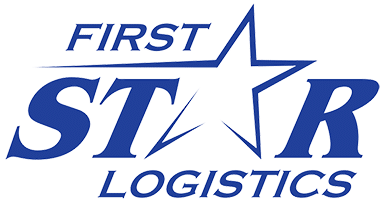The freight brokerage industry has undergone significant transformations over the decades, evolving from a tightly regulated component of the logistics sector to a modern, technology-driven field. This blog explores the historical journey of the freight brokerage industry, shedding light on how it has adapted and thrived from its early days, through deregulation, and into the digital era, all of which have shaped the dynamic nature of modern freight brokerage jobs.
The Early Days of the Trucking Industry
The trucking industry, an indispensable part of America’s economic infrastructure, began to take form in the early 20th century. Initially, the industry was fragmented, with numerous small operators using rudimentary trucks to transport agricultural goods to markets. As the manufacturing sector grew, so did the demand for trucking, expanding the scope of what trucking companies could offer.
During its infancy, the trucking industry was heavily regulated. The Interstate Commerce Commission (ICC) was established in 1887 and extended its oversight to trucking in 1935 under the Motor Carrier Act. This act required interstate carriers to obtain a permit, dictating rates and routes that limited competition but also brought a degree of stability to the industry. Freight brokers during this time had to navigate a complex landscape of regulations, often acting as essential intermediaries who understood the legalities of interstate commerce.
Deregulation of the Trucking Industry
By the mid-1970s, the call for deregulation grew louder. Critics argued that ICC controls led to inefficiencies, inflated costs, and stifled innovation. The deregulation movement gained momentum, culminating in the Motor Carrier Act of 1980, which significantly reduced federal control over the trucking industry. This act allowed carriers to set their own rates and routes, leading to increased competition and lower freight costs.
Deregulation had a profound impact on the freight brokerage industry. With fewer barriers to entry, the market saw an influx of new brokers. These brokers capitalized on the competitive environment, offering more flexible and innovative logistics solutions to shippers. This increased competition fostered a more customer-centric approach, driving improvements in service quality and efficiency.
The Digital Revolution
The late 20th and early 21st centuries introduced the digital revolution to freight brokerage. The advent of the internet and subsequent technological innovations transformed how brokers operated. Software solutions for route planning, real-time tracking, and automated transactions became the norm. Platforms like online freight marketplaces began to emerge, offering more streamlined, efficient ways to connect shippers and carriers.
Freight brokers quickly adopted new technologies to stay competitive. Digital tools allowed brokers to offer faster, more reliable service options. The ability to track shipments in real-time, access to vast databases of carrier profiles, and automate many of the logistical tasks drastically reduced costs and increased operational efficiency.
Modern Freight Brokerage Jobs
Today’s freight broker is vastly different from their early predecessors. Modern freight brokers are tech-savvy, skilled negotiators who must understand complex software systems as much as the fundamentals of supply chain logistics. They work in fast-paced environments, often coordinating thousands of shipments simultaneously across multiple modes.
In modern freight brokerage, technology is indispensable. Brokers use advanced Transportation Management Systems (TMS), Customer Relationship Management (CRM) software, and various analytical tools to optimize shipping routes, manage customer relationships, and ensure compliance with regulatory requirements. This technology integration enhances operational capacities and provides data-driven insights that are critical in strategic decision-making.
Why Choose a Career in Freight Brokerage?
The freight brokerage industry offers diverse career paths ranging from independent broker operations to roles in large multinational logistics companies. This sector is ideal for those who thrive in dynamic, fast-paced environments and enjoy problem-solving and negotiation.
Choosing a career in freight brokerage comes with numerous benefits. It offers considerable flexibility in terms of work arrangements, the potential for high earnings based on commission, and the opportunity to work in a rapidly evolving industry. Moreover, the satisfaction that comes from playing a crucial role in the global supply chain can be immense. After all, freight brokers make significant impacts on the efficiency of supply chains, helping businesses reduce costs and enhance service delivery. The role is critical in ensuring that goods are delivered in the most efficient manner possible, contributing to overall economic efficiency and sustainability.
For those interested in becoming part of this dynamic industry, the time has never been better to explore the opportunities that freight brokerage offers. To start your career in freight brokerage, apply to First Star Logistics today!



